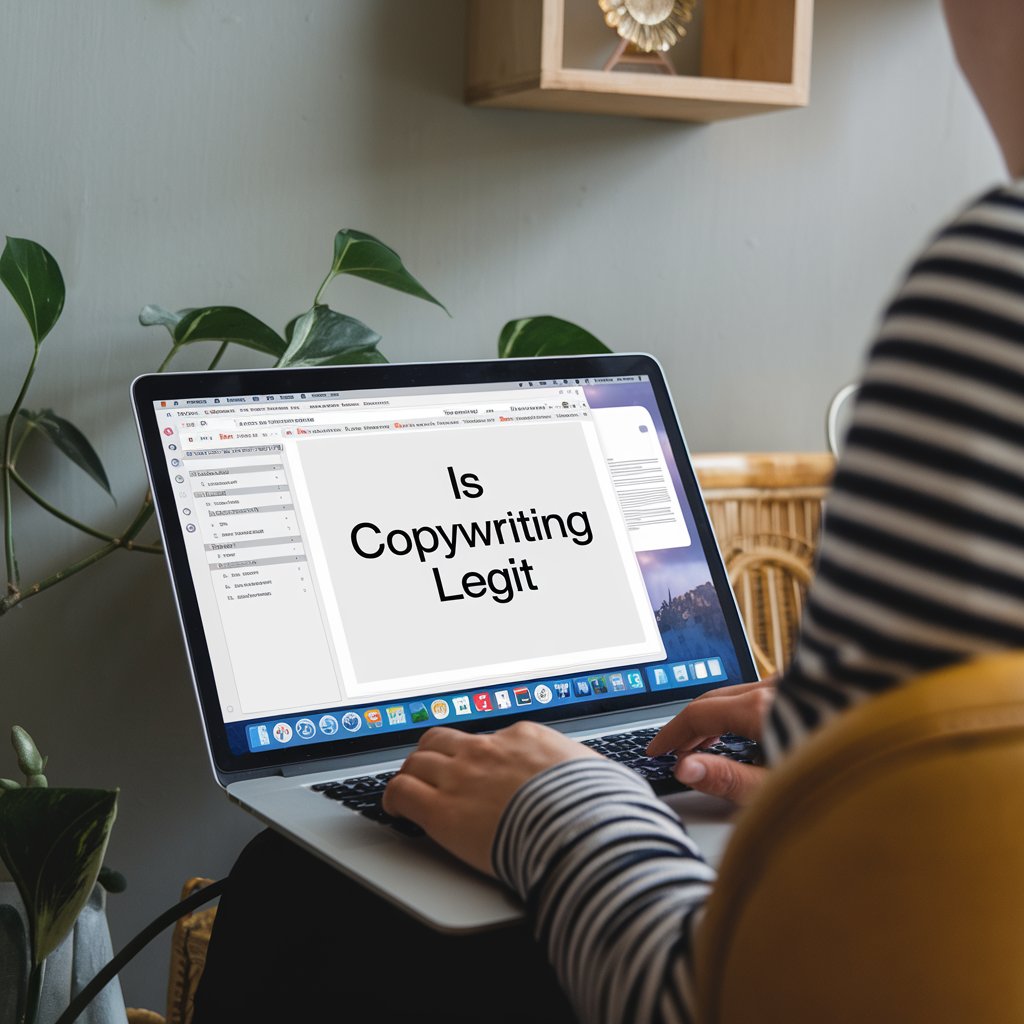is copywriting legit
Yes, copywriting is a legitimate profession and an essential part of marketing and advertising. It is copywriting legit involves writing persuasive and compelling content to promote products, services, or ideas. Copywriters create content for websites, advertisements, social media, emails, and other marketing materials.
However, be cautious of scams that claim to offer “easy money” through copywriting with little effort or training. Legitimate copywriting requires skill, creativity, and understanding of marketing psychology. Many successful copywriters take courses, build portfolios, and gain experience over time.
What is Copywriting?
Copywriting is the art and science of writing persuasive content (or “copy”) that encourages people to take a specific action, such as purchasing a product, signing up for a newsletter, or clicking on a link. It is a key component of marketing and advertising.

Types of Copywriting:
- Advertising Copywriting – Writing for ads, commercials, and promotional materials.
- Website Copywriting – Creating engaging content for websites, landing pages, and sales pages.
- SEO Copywriting – Writing content optimized for search engines to drive organic traffic.
- Email Copywriting – Writing emails that persuade readers to take action (e.g., sales emails, newsletters).
- Social Media Copywriting – Creating posts, captions, and ads for social media platforms.
- Direct Response Copywriting – Writing designed to get an immediate response, like sales letters or infomercials.
- Content Marketing Copywriting – Writing blogs, ebooks, or articles that subtly promote a brand.
Why is Copywriting Important?
Good copywriting:
✅ Captures attention
✅ Builds trust
✅ Increases sales and conversions
✅ Enhances brand identity
✅ Improves search engine rankings
How is Copywriting Different from Content Writing?
- Copywriting is focused on persuasion and driving sales.
- Content Writing is more about informing, educating, or entertaining an audience.

How Does Copywriting Work?
Copywriting works by using persuasive language, psychology, and marketing techniques to encourage a specific action, such as making a purchase, signing up for a service, or engaging with content. Here’s how the process typically works:
1. Understanding the Target Audience
Before writing, a copywriter researches the audience to understand their:
- Needs and pain points
- Desires and motivations
- Language and communication style
2. Researching the Product or Service
A copywriter studies the product, service, or brand to highlight its:
- Unique selling points (USPs)
- Benefits (not just features)
- Competitive advantage
3. Crafting Persuasive Copy
The copy is written using psychological triggers such as:
- Emotional appeal – Connecting with feelings (e.g., “Imagine waking up refreshed every morning!”)
- Social proof – Using testimonials or reviews (“Trusted by 10,000+ happy customers”)
- Scarcity & urgency – Creating FOMO (“Limited stock—buy now before it’s gone!”)
- Call to Action (CTA) – Encouraging immediate action (“Click here to start your free trial”)
4. Optimizing for Different Platforms
Copywriting adapts to different formats, such as:
- Website copy (homepages, sales pages, landing pages)
- Social media posts and ads
- Email campaigns
- Blog content with persuasive CTAs
- Print ads, brochures, and billboards
5. Testing & Refining
After publishing, copywriters analyze performance metrics like:
- Click-through rates (CTR)
- Conversion rates (how many people take action)
- Engagement (likes, shares, comments)
The End Goal? More Sales & Engagement
Effective copywriting turns passive readers into paying customers or loyal followers.
The ultimate purpose of advertising copywriting is to drive sales, engagement, and brand awareness. Every word in an ad is carefully crafted to capture attention, evoke emotion, and persuade the audience to take action.
🔹 Increase Sales – A strong ad copy highlights the product’s benefits and convinces potential customers to buy.
🔹 Boost Engagement – Engaging ads encourage likes, shares, comments, and interaction with the brand.
🔹 Strengthen Brand Loyalty – Memorable and persuasive messaging builds trust and long-term customer relationships.
🔹 Maximize Conversions – Effective calls to action (CTAs) turn viewers into buyers, subscribers, or leads.
In short, great copywriting means more visibility, higher conversions, and business growth.
Frequently Asked Questions (FAQs) About Copywriting
1. Is copywriting a legitimate career?
Yes! Copywriting is a legitimate and in-demand profession. Businesses need skilled copywriters to create persuasive content for marketing and sales. Many copywriters work as freelancers, for agencies, or as in-house writers.
2. How much do copywriters earn?
Copywriting salaries vary based on experience, niche, and client base. Freelancers can earn anywhere from $50 to $500+ per project, while experienced copywriters can make six figures annually.
3. Do I need a degree to become a copywriter?
No, a degree is not required. Many successful copywriters are self-taught. However, taking courses in marketing, psychology, or creative writing can be helpful.
4. How do I start copywriting with no experience?
- Learn the basics of persuasive writing and marketing.
- Practice writing ads, sales pages, and social media posts.
- Build a portfolio with sample projects.
- Offer free or low-cost work to gain experience.
- Apply for entry-level jobs or start freelancing.
5. Where can I find copywriting jobs?
- Freelance platforms (Upwork, Fiverr, People Per Hour)
- Job boards (LinkedIn, Indeed, Pro Blogger)
- Networking on social media
- Direct outreach to businesses
6. What skills do I need to be a successful copywriter?
- Strong writing and grammar skills
- Understanding of marketing and psychology
- Ability to write persuasively and concisely
- SEO knowledge (for online content)
- Research and adaptability skills
7. Is copywriting hard to learn?
Copywriting is a skill that improves with practice. The basics are easy to learn, but mastering it takes time, effort, and experience.
8. Can AI replace copywriters?
AI tools can assist with copywriting, but human creativity, emotional intelligence, and strategic thinking are irreplaceable. Skilled copywriters will always be needed for high-quality, engaging content.






